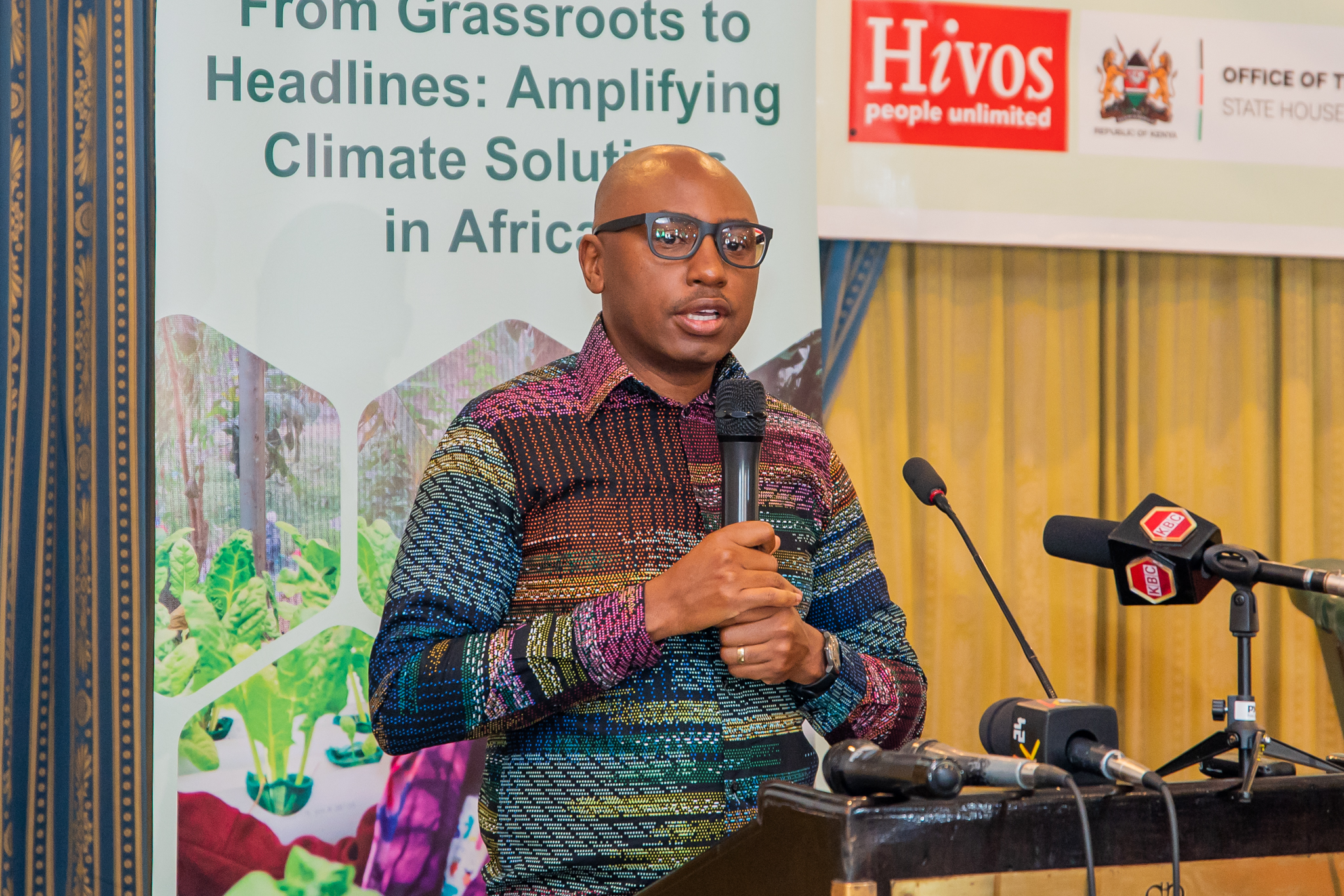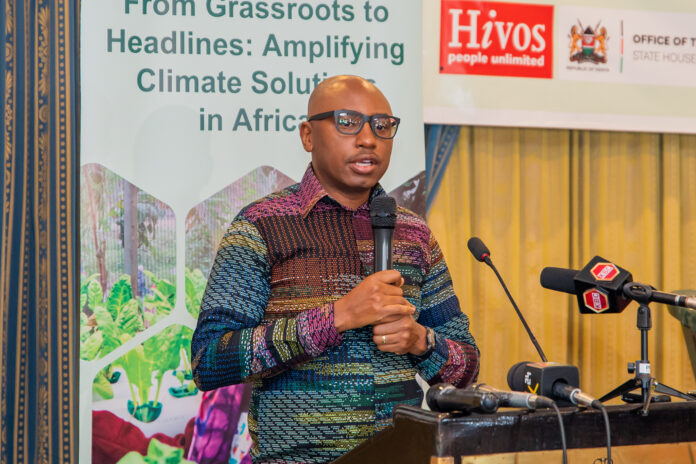By Scovian Lillian
Nairobi, Kenya: Today’s agenda of reporting on climate from the grassroots is a stitch in time, and the Africa Climate Summit helped amplify climate action, hence media partnerships with stakeholders will also help to continue championing climate change adaptation and mitigation efforts in the Country.
These are the words of Dr. John Chumo, Chief Executive Officer, of Mama Doing Good who was speaking during a presser in Nairobi on the 6th of September. Mama Doing Good is a consolidation of five core programs that catalyze socio-economic transformation in communities to achieve a quality holistic life through, spirituality, collective agency, voice, and influence.
Civil society organizations, grassroots community leaders, and members of the Fourth Estate gathered to engage on climate solutions in line with the Africa Climate Summit, “Driving green growth and climate finance solutions for Africa and the World”.
Kenya, having experienced the worst drought in 40 years recently, where some areas were rain depressed for over four consecutive seasons, resulting in a massive loss of livestock and wildlife due to a lack of water and forage intends to regreen through a national Tree-growing Campaign launched by President William Ruto in December 2022.
Chumo mentioned that women and youth empowerment are a key priority in creating better societies. “We have assisted over 14,000 female-led women’s groups that bring together over 170,000 women through our Joyful Women program”, he said.
On her part, the Founder of Wang’an Women Initiative in Marsabit representing grassroots community leaders, Teresabla Sintinyan explained that the initiative helps to amplify the voices of indigenous women, persons with disabilities, and girls to ensure they are better represented in crucial climate justice discussions such as those around loss and damage and climate finance.
“The Initiative, in Loiyangalani near Lake Turkana, represents the community who are not benefitting from this wind power project which has been built on their ancestral land. The community is still not connected to Kenya’s power grid. They are impacted by climate change, with this part of Kenya hit hardest by the recent drought, the worst in 40 years. Flash floods recently followed, and the village is literally cut in half, with schools and healthcare inaccessible.
Speaking about the need to embrace renewable energy to transform lives at the grassroots as a way of championing climate change impacts, Sintinyan explained that many new energy projects offer promises of new jobs, wealth for the local community, and access to power but in reality, the promises rarely materialize because the companies are self-regulating.
“Basic human rights like access to water, food, energy, education, and decent shelter are still lacking in this area, which will nonetheless be celebrated as a ‘success’ in terms of the energy transition”, she added.

To achieve justice at the heart of climate finance in efforts to combat climate change impacts, a briefing paper by HIVOS recommends that most climate finance flows should show transparency and embrace mechanisms that aim to effectively create capacity while prioritizing local communities.
Kennedy Mugochi, Regional Director, Eastern Africa Hivos Said, “Local communities are investing in agriculture and these practices enhance food security and we cannot ignore the impacts of climate change in communities. Advocacy is vital for policy change among communities, and it is important that when we make policies and do advocacy we include local voices to learn and listen to them and then incorporate their views in decision-making”.














